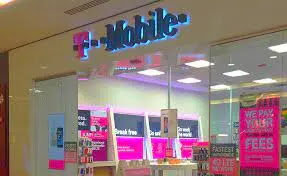T-Mobile Service
Outage Slams Users Across the U.S.
In recent news, T-Mobile experienced a significant service outage that affected customers across the United States. The issue occurred on Monday, February 13th, and impacted many T-Mobile customers' ability to make calls and send text messages.
The service outage was widespread, affecting customers across the country, including those in major cities such as New York, Los Angeles, and Chicago. Many customers took to social media to express their frustration, as they were unable to make or receive calls, send text messages, or access data services.
T-Mobile issued a statement acknowledging the issue and stating that they were working to resolve it as quickly as possible. The company also apologized for any inconvenience caused to its customers and encouraged them to reach out to T-Mobile's customer service team if they were experiencing any issues.
The outage is a reminder of the importance of reliable telecommunications services, especially in today's world where many people rely on their mobile phones for both personal and professional communication. It's also a reminder of the importance of having backup communication plans in place, in case of emergencies or unexpected outages.
For those affected by the outage, T-Mobile has stated that they will be issuing credits to their customers as a gesture of goodwill. It's unclear how long the outage will last, but T-Mobile is working to resolve the issue as quickly as possible.
The service outage is not only frustrating for customers, but it can also have significant consequences for businesses and organizations that rely on T-Mobile's network for critical communication. The outage may have caused disruptions in operations, delayed communication with customers, and even lost revenue for some businesses.
T-Mobile's outage also highlights the importance of having a robust and reliable backup plan in place, especially for businesses that rely heavily on mobile communication. This may include having backup cellular providers, backup communication tools, or even a plan to switch to landlines or other forms of communication in case of an outage.
For T-Mobile, this outage is a reminder of the importance of investing in infrastructure and network resilience to ensure that such outages don't occur in the future. The company may need to review its network design, maintenance protocols, and disaster recovery plans to prevent future service disruptions.
It's also worth noting that this is not the first service outage that T-Mobile has experienced. The company has faced similar issues in the past, including a nationwide outage in 2020 that affected voice and text services for several hours. These repeated outages may raise concerns about the reliability of T-Mobile's network and its ability to provide consistent service to its customers.
Additionally, the outage may have legal and regulatory implications for T-Mobile. The Federal Communications Commission (FCC) regulates the telecommunications industry in the United States and requires that providers meet certain standards for network reliability and service quality. T-Mobile may face penalties or fines if the outage is found to be a result of non-compliance with these standards.
In the aftermath of the outage, it's important for T-Mobile to communicate transparently with its customers and the public about the cause of the outage and the steps it's taking to prevent similar issues in the future. This includes providing updates on the status of the outage and ensuring that customers have access to reliable and accurate information.
In conclusion, the T-Mobile
service outage highlights the need for reliable and resilient communication
services, the importance of backup plans, and the potential consequences of
service outages on businesses and organizations. T-Mobile's response to the
outage will be critical in retaining customers, rebuilding trust, and ensuring
compliance with regulatory standards.




